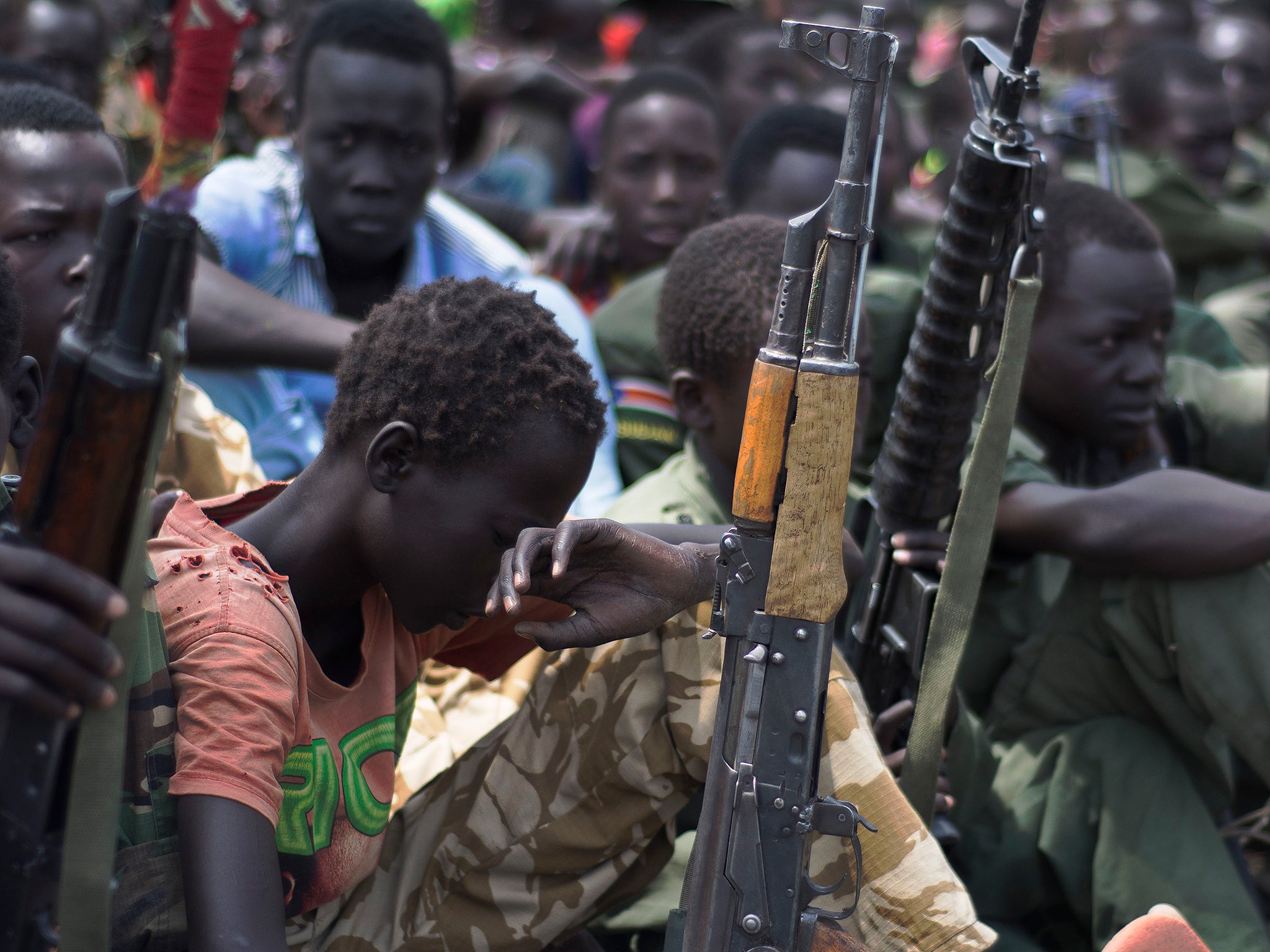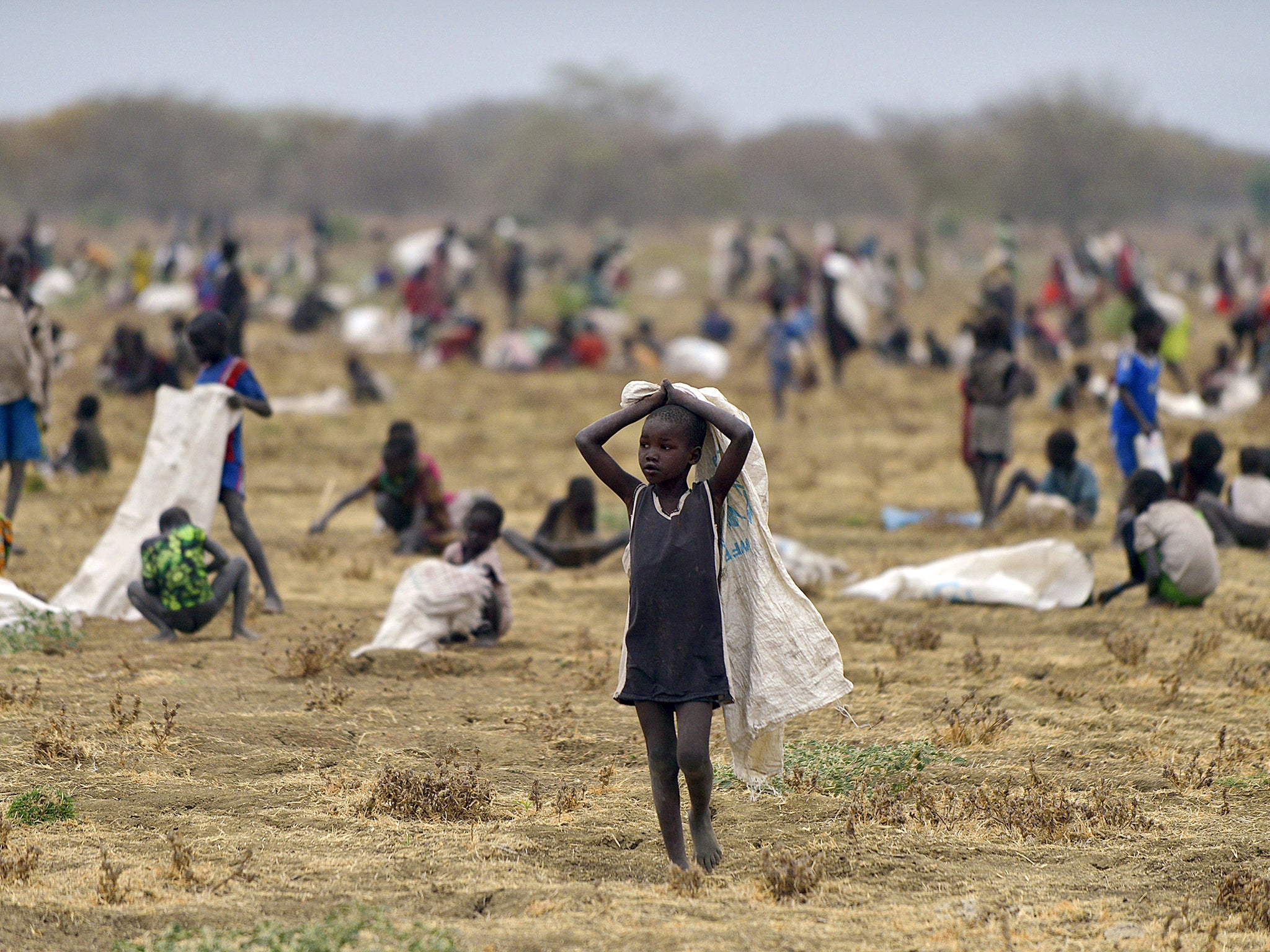South Sudan army burned civilians alive, ran them over and swung children into tree trunks, says Amnesty
Human rights group warns 'government continues to give suspected perpetrators free rein to commit fresh atrocities'

Your support helps us to tell the story
From reproductive rights to climate change to Big Tech, The Independent is on the ground when the story is developing. Whether it's investigating the financials of Elon Musk's pro-Trump PAC or producing our latest documentary, 'The A Word', which shines a light on the American women fighting for reproductive rights, we know how important it is to parse out the facts from the messaging.
At such a critical moment in US history, we need reporters on the ground. Your donation allows us to keep sending journalists to speak to both sides of the story.
The Independent is trusted by Americans across the entire political spectrum. And unlike many other quality news outlets, we choose not to lock Americans out of our reporting and analysis with paywalls. We believe quality journalism should be available to everyone, paid for by those who can afford it.
Your support makes all the difference.South Sudan’s military forces systematically raped women, murdered civilians and carried out large-scale looting, Amnesty International has alleged.
Civilians were burnt alive, hanged in trees and run over with armoured vehicles in opposition-held areas in Unity State, the group said, while children were swung into tree trunks to kill them.
The report is based on the testimonies of around 100 civilians who fled an offensive by government forces and allied youth militias in Mayendit and Leer counties between 21 April and early July this year.
Amnesty said it had called for an investigation after identifying four individuals it suspected of responsibility for war crimes and crimes against humanity following an offensive in Unity State in 2016.
But the South Sudanese authorities failed to respond to the warnings and recent UN reports suggest some of those identified by Amnesty may have also been involved in atrocities committed during the offensive this year.
Joan Nyanyuki, Amnesty International’s regional director for East Africa, said: “A key factor in this brutal offensive was the failure to bring to justice those responsible for previous waves of violence targeting civilians in the region.
“Leer and Mayendit counties have been hard hit in the past, and yet the South Sudanese government continues to give suspected perpetrators free rein to commit fresh atrocities. The result has been catastrophic for civilians.”
Unity State has been the site of the most ruthless violence since South Sudan’s civil war erupted five years ago.
At least 50,000 people have been killed during the conflict, many of them civilians, according to UN figures, and an estimated quarter of South Sudan’s population has been displaced.
Dozens of civilians told Amnesty about how, during the recent offensive, soldiers and militias used amphibious vehicles to hunt down civilians who had fled to nearby swamps.
Survivors described how groups of five or more soldiers often shot indiscriminately into the reeds as they searched for people.
One elderly woman, Nyalony, told Amnesty she saw her husband and two other men killed by soldiers: “When the attack started, early in the morning while we were sleeping, my husband and I ran to the swamp together. Later in the morning, after the fighting was over, the soldiers came into the swamp looking for people, and sprayed the area where we were hiding with bullets.
“My husband was hit; he cried out in pain. He was still alive, though, and the soldiers caught him, and then they shot him again and killed him. He was unarmed and wasn’t a fighter; just a farmer.”
Those who were unable to flee, especially the elderly, children and people with disabilities, were often killed in their villages.

Several witnesses described how elderly relatives or neighbours were burnt alive in their tukuls (traditional dwellings) and one man in his 90s had his throat slit with a knife.
Nwaweke, 20, said she witnessed soldiers shooting her father and then murdering several children in the village of Thonyoor in Leer county: “There were seven men [soldiers] who collected the children and put them into a tukul and they set the tukul on fire.
“I could hear the screaming. They were four boys. One boy tried to come out and the soldiers closed the door on him.
“There were also five boys whom they hit against the tree, swinging them. They were two [or] three years old. They don’t want especially boys to live because they know they will grow up to become soldiers.”

Other survivors described similar horrors, including one in Rukway village in Leer where an elderly man and woman were burnt to death in a house along with their two young grandsons.
When their daughter ran out with a small baby, a soldier shot her and crushed the baby to death with his foot.
Amnesty’s report also detailed how government and allied forces abducted primarily women and girls and held them for up to several weeks, with many women and girls gang-raped. Those who attempted to resist were killed.
One interviewee said a girl as young as eight was gang-raped and another woman saw a 15-year-old boy being raped.
A 60-year-old man described finding his 13-year-old niece after she was gang-raped by five men: “My brother’s daughter was raped and she was going to die.
“When they raped her, we came and found her and she was crying and bleeding … she couldn’t hide … she told me she was raped by five men. We could not carry her and she could not walk.”
Amnesty has called on South Sudan’s government to end all atrocities and immediately establish the Hybrid Court of South Sudan, which has been in Limbo since 2015.
It also urged the United Nations Security Council to enforce an arms embargo adopted in July.
Join our commenting forum
Join thought-provoking conversations, follow other Independent readers and see their replies
Comments